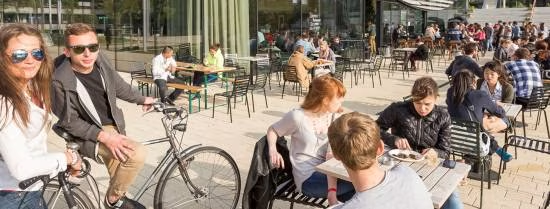Looking to gain work experience through a part-time job or internship during your studies in Rotterdam? We love the initiative to work on your career. You’ll boost your CV, while learning more about Dutch society and earning extra money.
However, as an international student your position is different than that from Dutch students.
Pro-tip: do not rely on the income of a side-job to cover your studies and living expenses.
Before coming here to study at Erasmus University Rotterdam (EUR), make a financial budget plan.
Mainly, as an international student you should be prepared for:
You have to switch from private insurance to Basic Health Care insurance. This is a legal obligation.
Employers are usually looking for people who speak and/or understand Dutch.
- Non-EU/EEA students face specific legal restrictions concerning the number of hours they are allowed to work;
- Non-EU/EEA students need to get a work permit through their employer. Employers can consider this to be a hassle.

I have been working since I was 16 and what I can say is that I have grown the most as an individual in international settings like this.
"The environment feels welcoming and safe, something that I find very important when thinking of the best workplace."
Dutch language
Win-win: integrate into society + find a job more easily.
Non-EU/EEA students
Non-EU student? Specific rules apply to your situation.
Start looking
How and where to find a job or an internship?
What to arrange
Don’t forget: bank account, insurance, taxes, etc.
Attention, employers!
Are you hiring an international student?
FAQ
Answers to all your questions about working in NL.
